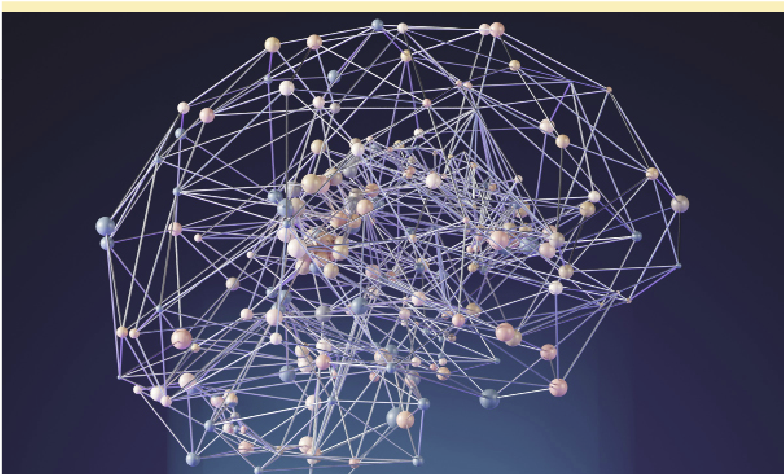Adoption of Ethical and Responsible AI in the Nordics

State of AI in the Nordics
In 2022, over 100 senior executives of major enterprises from Denmark, Finland, Sweden, and Norway were surveyed on their AI maturity. This research showed that companies in this region are actively investing in AI and has seen growth in AI-influenced revenue over the past years. From 2019 to 2022, the AI-influenced revenue of surveyed companies doubled, increasing from 8% to 19%. There is a strong prediction that this trend will continue, with AI-influenced revenue expected to increase significantly, reaching 26% by 2025. However, Nordic companies have yet to take full advantage of what AI can do for their business. 81% of surveyed organizations in 2022 were still experimenting with AI. Only 6% were considered AI achievers, meaning they have differentiated AI strategies and ability to scale value from AI.
Accenture, Nordic AI Maturity report, 2022 https://www.accenture.com/content/dam/accenture/final/accenture-com/document/Accenture-Nordic-AI-Maturity-Report.pdf
There is less available data on the AI maturity of Icelandic companies, but looking at closely related data points can provide some indication. In international comparison, Iceland ranks 20th on the Global Innovation Index 2023 ranking. This means that Iceland outranks many large European countries such as Spain, Portugal, and Italy. However, both Denmark, Finland, Sweden, and Norway rank higher.
World Intellectual Property Organization, Global Innovation Index, 2023 https://www.wipo.int/edocs/pubdocs/en/wipo-pub-2000-2023-en-main-report-global-innovation-index-2023-16th-edition.pdf
Tortoise Media, The Global AI Index, 2023 https://www.tortoisemedia.com/intelligence/global-ai/
Adoption of Ethical and Responsible AI in the Nordics
Businesses in the Nordics are taking important steps to develop an ethical and responsible approach to AI, but few have operationalized it. In a study from 2023, 28% of surveyed business leaders of major enterprises in Denmark, Finland, Sweden, and Norway had developed formal ethical guidelines, but only 22% had operationalized them across their organization. 49% stated that they had not taken any action at all to develop ethical guidelines for AI.
Accenture, Re:humanize Institute, Impact leadership in the age of Generative AI, 2024 https://rehumanizeinstitute.org/wp-content/uploads/2024/01/Nordic-Responsible-Business-Report.pdf
Looking ahead, the maturity of AI adoption in the Nordics is expected to increase
Accenture, Nordic AI Maturity report, 2022 https://www.accenture.com/content/dam/accenture/final/accenture-com/document/Accenture-Nordic-AI-Maturity-Report.pdf
Accenture, Re:humanize Institute, Impact leadership in the age of Generative AI, 2024 https://rehumanizeinstitute.org/wp-content/uploads/2024/01/Nordic-Responsible-Business-Report.pdf
Accenture, Re:humanize Institute, Impact leadership in the age of Generative AI, 2024 https://rehumanizeinstitute.org/wp-content/uploads/2024/01/Nordic-Responsible-Business-Report.pdf

Nordic Businesses’ Preparedness for Emerging AI Regulation and Ethical Requirements
There is an increase in new C-suite roles with a focus on AI strategy such as Chief Analytics Officer, Chief Data Officer, and Chief Digital Officer, that are working closely with the CEO and board members to among all prepare to meet emerging legal requirements
Accenture, Nordic AI Maturity report, 2022 https://www.accenture.com/content/dam/accenture/final/accenture-com/document/Accenture-Nordic-AI-Maturity-Report.pdf
Accenture, From AI compliance to Competitive Advantage, 2022 (Data extracted from respondents from Denmark, Finland, Sweden, Norway) https://www.accenture.com/content/dam/accenture/final/a-com-migration/r3-3/pdf/pdf-179/accenture-responsible-by-design-report.pdf
What Nordic organizations consider as the top three greatest internal challenges in meeting future regulations of AI:
1.
Lack of talent and expertise
2.
Lack of appropriate technical approaches
3.
Lack of clearly defined roles and responsibilities
Accenture, From AI compliance to Competitive Advantage, 2022 (Data extracted from respondents from Denmark, Finland, Sweden, Norway) https://www.accenture.com/content/dam/accenture/final/a-com-migration/r3-3/pdf/pdf-179/accenture-responsible-by-design-report.pdf
For generative AI, Nordic businesses are likely to build downstream applications based on foundation models, which means that they may need to consider their AI providers as part of their ethical and responsible AI approach. Simultaneously, developers of foundation models struggle with living up to transparency requirements.
In October 2023, no major foundation model developer was close to providing adequate transparency. Across 100 transparency indicators, the top-scoring model scored only 54
Stanford University’s Centre for Research on Foundation Models (CRFM), Institute on Human-Centred Artificial Intelligence (HAI), MIT Media Lab, Princeton University’s Centre for Information Technology Policy, The Foundation Model Transparency Index, 2023 https://crfm.stanford.edu/fmti/
Ecosystem Collaborations for Ethical and Responsible AI
When asked about how to increase adoption of ethical and responsible AI among businesses in the Nordics, interviewed companies for this report stress among all the importance of complementing regulations with standards, guidelines, and methodologies. Sharing successful examples of how others have gone about to operationalize ethics and responsibility in AI solutions should be encouraged.
There are several national ecosystem initiatives in the Nordics focused on increasing collaboration on AI, many of these focus on technology development. For example, Iceland has created Almannarómur, an Icelandic language technology center tasked with protecting the Icelandic language in the digital world and providing access to language technology. Almannarómur is funded by the Icelandic government, and founding members include academic institutions and industry actors.
Almannarómur, About Almannarómur, 2023 https://almannaromur.is/en/um-okkur
Government of Iceland, Head start for Icelandic, 2023 https://www.government.is/diplomatic-missions/embassy-article/2023/03/14/Head-start-for-Icelandic
AI Sweden, GPT-SW3, 2023 https://www.ai.se/en/project/gpt-sw3
Linköpings Universitet, De tar fram en tillförlitlig ChatGPT för europeiska språk, 2023 https://liu.se/nyhet/trustllm
Silo.AI, SiloGen launches a consortium to build the world’s largest open LLM, 2023 https://www.silo.ai/blog/silo-ai-launches-a-consortium-to-build-the-worlds-largest-open-llm
Silo.AI, Poro – a family of open models that bring European languages to the frontier, 2023 https://www.silo.ai/blog/poro-a-family-of-open-models-that-bring-european-languages-to-the-frontier
Bineric, Advancing Large AI Models, 2024 (see NorskGPT) https://bineric.com/
However, as identified in the Nordic AI and Data Ecosystem report from 2022 by Nordic Innovation, there is a lack of cross-Nordic ecosystem collaboration focused on helping industry actors understand how to adopt AI ethically and responsibly. It was recommended that the Nordics should focus on creating frameworks, guidelines, and networks to share best practices, use-cases, and knowledge between each other.
Nordic Innovation, The Nordic AI and Data Ecosystem, 2022 https://norden.diva-portal.org/smash/get/diva2:1667628/FULLTEXT02.pdf
Nordic Innovation, The Nordics mobilize to advance adoption of ethical AI by building a supportive ecosystem, 2023 https://www.nordicinnovation.org/news/press-release-nordics-mobilize-advance-adoption-ethical-ai-building-supportive-ecosystem
One global example of broad ecosystem collaboration is the Monetary Authority of Singapore (MAS), that established the Fairness, Ethics, Accountability and Transparency (FEAT) principles in 2018 together with members from the financial sector. These were introduced to accelerate the adoption of responsible AI to enable public trust in AI used in financial institutions.
Monetary Authority of Singapore, MAS introduces new FEAT Principles to promote responsible use of AI and data analytics, 2018 https://www.mas.gov.sg/news/media-releases/2018/mas-introduces-new-feat-principles-to-promote-responsible-use-of-ai-and-data-analytics
Veritas, Document 3A: FEAT Fairness Principles Assessment Methodology, 2022 https://www.mas.gov.sg/-/media/mas-media-library/news/media-releases/2022/veritas-document-3a---feat-fairness-principles-assessment-methodology.pdf
Veritas, Document 3B: FEAT Ethics and Accountability Assessment Methodology, 2022 https://www.mas.gov.sg/-/media/mas-media-library/news/media-releases/2022/veritas-document-3b---feat-ethics-and-accountability-principles-assessment-methodology.pdf
Veritas, Document 3C: FEAT Transparency Assessment Methodology, 2022 https://www.mas.gov.sg/-/media/mas-media-library/news/media-releases/2022/veritas-document-3c---feat-transparency-principles-assessment-methodology.pdf
Monetary Authority of Singapore, MAS-led Industry Consortium Publishes Assessment Methodologies for Responsible Use of AI by Financial Institutions, 2022 https://www.mas.gov.sg/news/media-releases/2022/mas-led-industry-consortium-publishes-assessment-methodologies-for-responsible-use-of-ai-by-financial-institutions
As Nordic companies mature their AI capabilities, the emphasis on ensuring ethical and responsible use of the technology is expected to intensify. Enabling collaboration and capability transfer can help make sure that companies leverage learnings from others, both within and outside of their industry.
